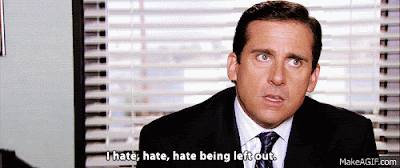“No. Travis, you stay
right here. And you make him understand what you doing, Walter Lee. You teach
him good. Like Willy Harris taught you. You show where our five generations
done come to” (Hansberry 147).
Family values transcend through each generation. Mama’s five generations believed in fighting for one’s family, trying to stay as a homogenous family unit. When Walter tries to sell the house to Mr. Lindner, he is metaphorically exchanging all the morals he has been taught for money. In effect, he will be empty inside, consumed by the societal ideal to achieve a higher socioeconomic status in life. However, Mama allows Travis to stay and “grin innocently” (Hansberry 147). Although Walter has already lost his innocence, he cannot take himself to destroy Travis’s innocence; he does not want Travis to see him trade his morals for money and see his black culture be subservient to the white race. As Travis looks up to Walter for guidance, Walter does not want him to feel trapped in a society filled with racial divisions. Instead, Walter’s decision acts as a model for Travis to stand up for his beliefs, fighting injustice and not giving in.
Loss of generational values is seen even in our 11 AP class. Our parents all went to school without advanced smartphones to text in class, snapchat, tweet, etc. Talking face-to-face and hanging out with friends is now being replaced with hours spent trying to take the perfect selfie or video to upload on one’s snap story. Despite regulations put in place to limit cellphone use, our generation has the audacity to continue using our phones constantly in class, having our eyes glued to our tiny screens. In a way, we have all adopted FOMO (Fear of Missing Out). This fear of regret—loss of social interaction—permeates through our minds; we adopt this obsession to know exactly what is going on in society at every moment. One ring from our phones makes everyone in class wonder if they received a notification, turning our attention to our phones. Now I am not saying that I am the perfect person. I waste copious amounts of time just refreshing Facebook to see if anyone posted something new. Snapchat almost trapped me into a cycle of destruction this summer: trying to maintain Snapchat streaks.
Family values transcend through each generation. Mama’s five generations believed in fighting for one’s family, trying to stay as a homogenous family unit. When Walter tries to sell the house to Mr. Lindner, he is metaphorically exchanging all the morals he has been taught for money. In effect, he will be empty inside, consumed by the societal ideal to achieve a higher socioeconomic status in life. However, Mama allows Travis to stay and “grin innocently” (Hansberry 147). Although Walter has already lost his innocence, he cannot take himself to destroy Travis’s innocence; he does not want Travis to see him trade his morals for money and see his black culture be subservient to the white race. As Travis looks up to Walter for guidance, Walter does not want him to feel trapped in a society filled with racial divisions. Instead, Walter’s decision acts as a model for Travis to stand up for his beliefs, fighting injustice and not giving in.
Loss of generational values is seen even in our 11 AP class. Our parents all went to school without advanced smartphones to text in class, snapchat, tweet, etc. Talking face-to-face and hanging out with friends is now being replaced with hours spent trying to take the perfect selfie or video to upload on one’s snap story. Despite regulations put in place to limit cellphone use, our generation has the audacity to continue using our phones constantly in class, having our eyes glued to our tiny screens. In a way, we have all adopted FOMO (Fear of Missing Out). This fear of regret—loss of social interaction—permeates through our minds; we adopt this obsession to know exactly what is going on in society at every moment. One ring from our phones makes everyone in class wonder if they received a notification, turning our attention to our phones. Now I am not saying that I am the perfect person. I waste copious amounts of time just refreshing Facebook to see if anyone posted something new. Snapchat almost trapped me into a cycle of destruction this summer: trying to maintain Snapchat streaks.
However, we must return
to our past generation’s values; we must take the conscientious effort to
ignore our phones when they get a new notification; we must limit our social
media usage; we must concentrate what is in front of us; we must respect
others. Travis reminds Walter of the 5 generations of family values just as Val
should remind us of our past generation’s values. Is it worth it to check our
phone or should we focus on our education? (however, I am left to wonder how students from last year got so many photos of Val for their memes)






































